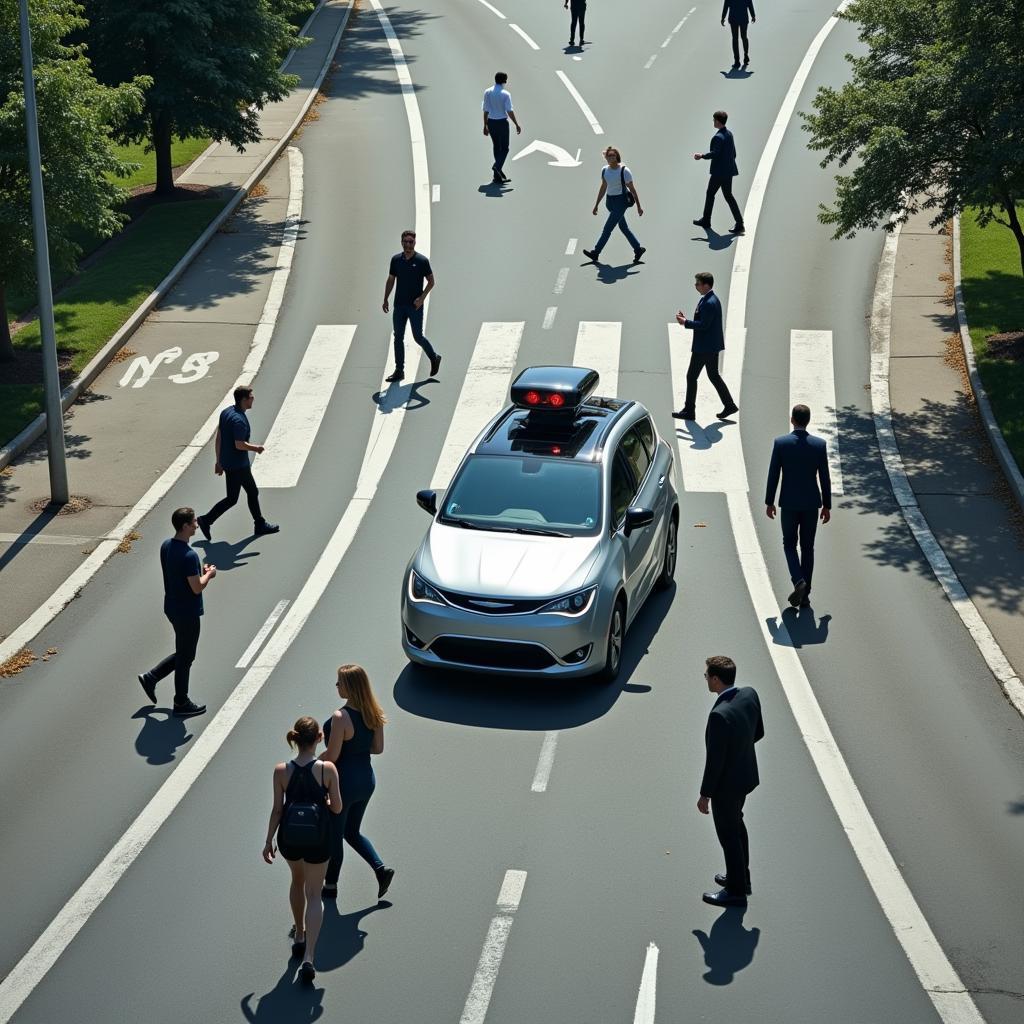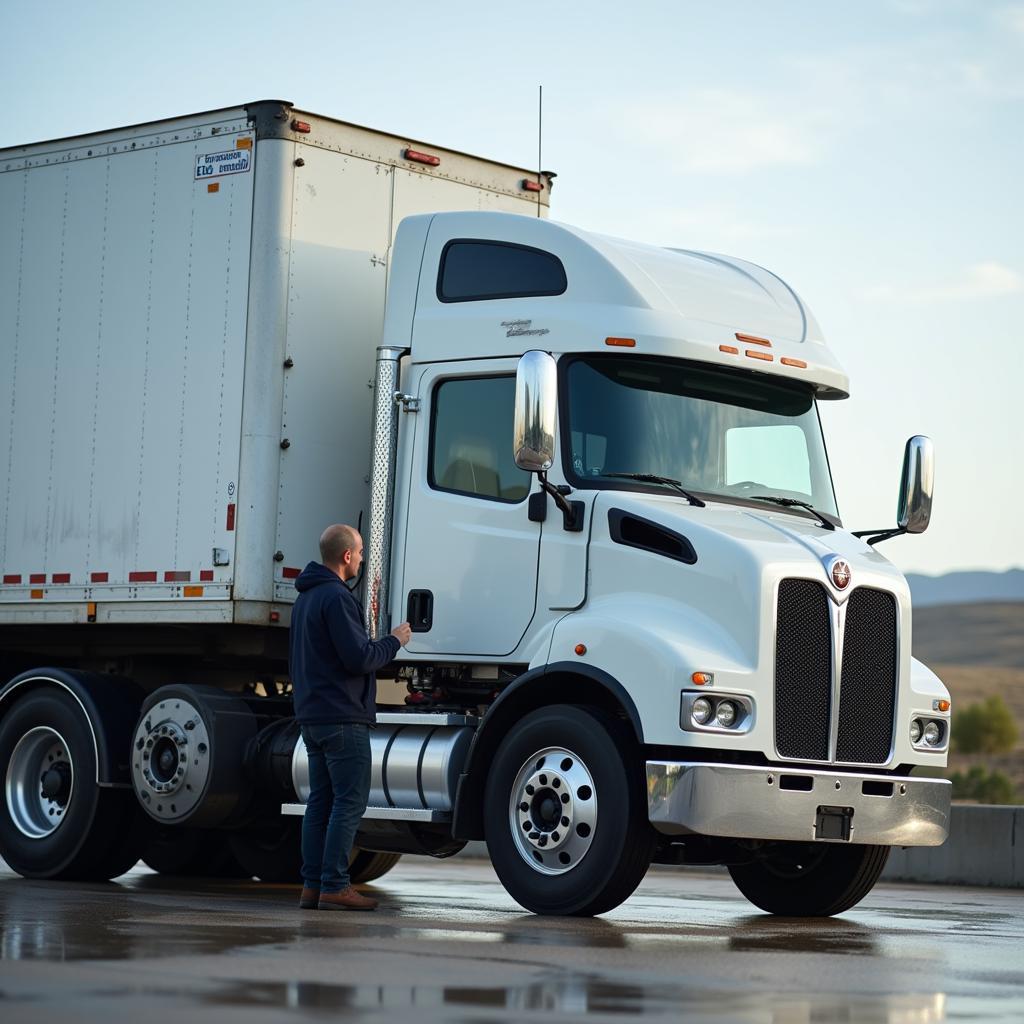Self-driving cars promise a future of automated convenience, but what problems self-driving cars will create against humanity are a growing concern. While the technology holds immense potential, it also raises significant ethical, social, and economic questions that deserve careful consideration. From job displacement to algorithmic bias and security vulnerabilities, the integration of autonomous vehicles into our society presents complex challenges we must address proactively.
The Ethical Dilemma: Who Decides in a Crisis?
One of the most pressing problems self-driving cars will create revolves around ethical decision-making in unavoidable accident scenarios. Imagine a situation where a self-driving car must choose between harming its passengers or pedestrians. How will these algorithms be programmed to make such life-or-death choices? Who bears the responsibility for the outcome? These moral dilemmas pose complex questions with no easy answers. The development of ethical guidelines and regulations for autonomous vehicle programming is crucial to navigating these complex moral landscapes. Furthermore, establishing clear lines of accountability in accident scenarios involving self-driving cars is essential to ensure justice and public trust.
 Ethical Dilemma: Self-Driving Car in Accident Scenario
Ethical Dilemma: Self-Driving Car in Accident Scenario
Economic Disruption: The Future of Work in a Driverless World
The widespread adoption of self-driving cars could lead to significant job displacement across various sectors. Professional drivers, including truckers, taxi drivers, and delivery drivers, face the risk of unemployment as autonomous vehicles take over their roles. This potential economic disruption requires proactive measures to mitigate its impact, including retraining programs and the development of new job opportunities within the autonomous vehicle industry. Adapting to a driverless future will necessitate a shift in our workforce and economic landscape.
 Job Displacement: Truck Driver Replaced by Autonomous Vehicle
Job Displacement: Truck Driver Replaced by Autonomous Vehicle
Security Risks: Hacking and Data Vulnerabilities
Self-driving cars rely on complex software and interconnected systems, making them vulnerable to hacking and cyberattacks. Malicious actors could potentially gain control of autonomous vehicles, causing accidents, traffic disruptions, or even using them as weapons. Ensuring the cybersecurity of self-driving cars is paramount to safeguarding public safety and preventing these vehicles from becoming tools for criminal activity. Robust security measures and constant vigilance are essential to mitigate these risks.
How can we ensure these vehicles aren’t used for malicious purposes? The answer lies in robust cybersecurity protocols and continuous system updates.
Algorithmic Bias: Fairness and Equality in Autonomous Systems
The algorithms that govern self-driving cars are trained on vast amounts of data, and biases within this data can lead to discriminatory outcomes. For example, if the training data primarily features pedestrians with certain characteristics, the algorithm might be less effective at recognizing and reacting to pedestrians with different characteristics. Addressing algorithmic bias is crucial to ensuring that self-driving cars operate fairly and equitably for all members of society.
“Ensuring fairness and eliminating bias in autonomous vehicle algorithms is not just a technical challenge, but a social imperative,” says Dr. Amelia Chen, AI Ethics Researcher at the Institute for Technological Advancement. Addressing this issue requires diverse and representative training data, rigorous testing, and ongoing monitoring for bias.
Problems Self-Driving Cars Will Create: A Call for Responsible Innovation
The development and deployment of self-driving cars require careful consideration of the potential problems they may create against humanity. While the technology promises significant benefits, it also presents complex ethical, social, and economic challenges that we must address proactively. By fostering open dialogue, investing in research, and developing responsible regulations, we can harness the potential of self-driving cars while mitigating their risks and ensuring a safe and equitable future for all.
Need help with your car? Connect with AutoTipPro at +1 (641) 206-8880. Our office is located at 500 N St Mary’s St, San Antonio, TX 78205, United States.
“The transition to a driverless future requires a collaborative effort between policymakers, researchers, and the automotive industry to ensure a smooth and beneficial integration for all,” adds Dr. Chen. This collaborative approach is crucial for maximizing the benefits of this transformative technology while mitigating its potential risks.
“Navigating the ethical and social implications of autonomous vehicles is a shared responsibility,” states Professor David Miller, Director of the Center for Autonomous Vehicle Research. We must prioritize human well-being and societal values in the development and deployment of this technology.





Leave a Reply